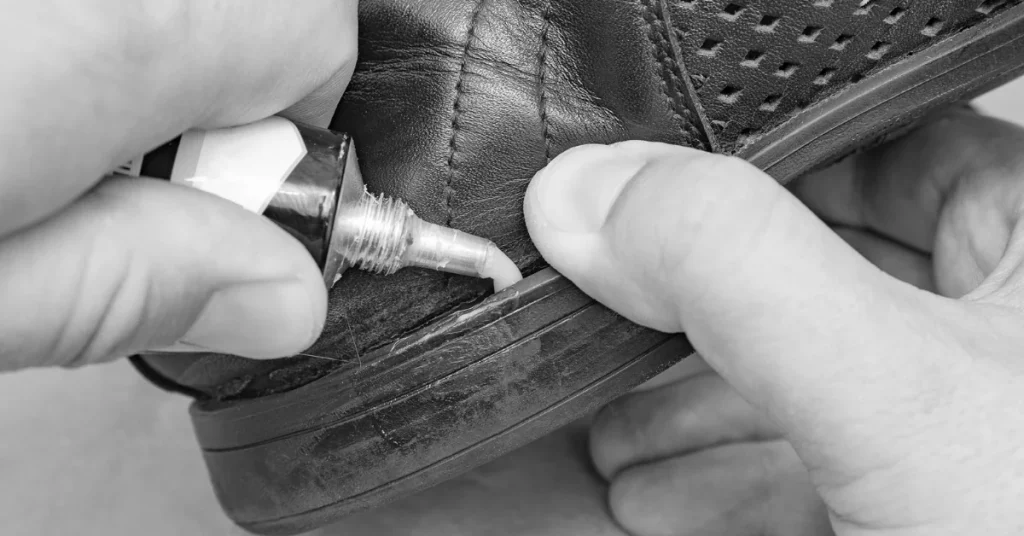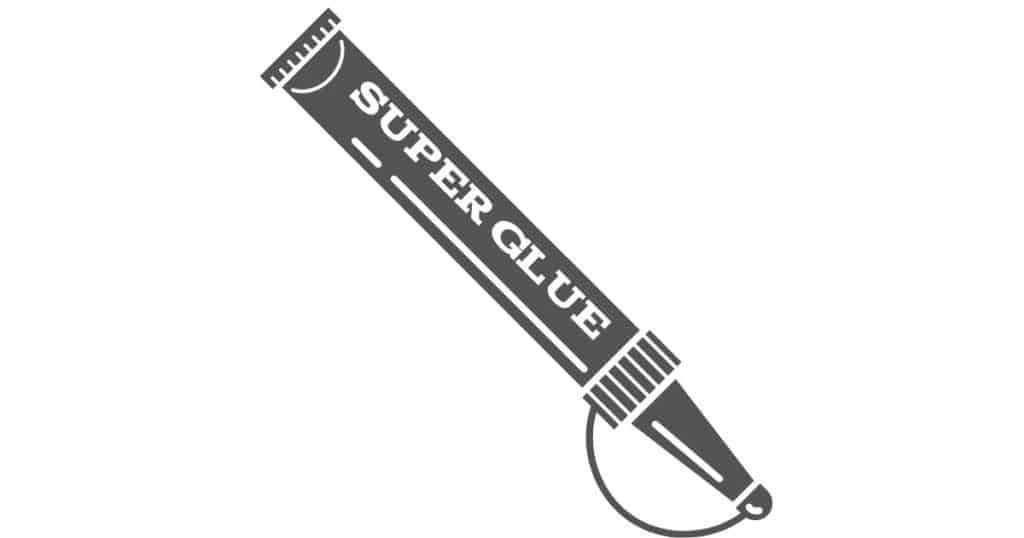Glue is one of the core components you need when you’re looking at household repairs or fixes, DIY Projects. However, there are many types and variants of available glues in the market, and you’ll run into multiple options that properly fit your specific purpose.
Rubber Glue and Super Glue are versatile adhesives you can use for multiple purposes so in the battle of Rubber Cement vs. Super Glue, which one should you side with? This article will cover what these glues offer, their features, differences, and more.
Read More: Contact Cement vs. Rubber Cement
Rubber Cement vs. Super Glue

Overview of Rubber Cement
Rubber Cement is a versatile adhesive that you can use for many household repairs and fixes, shoe repairs, and arts and crafts projects. Rubber Cement forms a strong, robust bond when the solvent it is composed of evaporates to solidify the Rubber in the formula.
Rubber Cement forms a flexible bond once wholly cured, making it ideal for various shoe repairs and fixes. Furthermore, Rubber Cement is suitable for many materials; shoes and boots are typically made of Rubber and Leather. You can use Rubber Cement on the soles of hills of your boots and shoes for recreational purposes since it creates a robust but flexible bond.
Rubber Cement is composed of Elastic Polymer – which later solidifies to form a bond, and a solvent comprising either – Acetone, Toluene, Hexane, or Heptane to maintain the fluidity of the adhesive.
Rubber Cement is easy to remove, and fixing while working with it is also easy. Rubber Cement is water-proof when cured, making it ideal for shoes you use in wet conditions.
Read More: Best Rubber Cement
Overview of Super Glue
Super Glue is the general name of various instant-setting Glue made by multiple manufacturers. Super Glue is a versatile Glue that works well with many materials like – Rubber, Plastic, Wood, Metal, Ceramic, and more.
Super Glue is versatile, and you can use it for small or big household repairs and arts and crafts projects. Furthermore, Super Glue is instant-setting and is an excellent pick for you if you’re looking for quick maintenance.
Super Glue is composed of Cyanoacrylate and forms a bond regarding contact with water. However, you will not need to use or spray extra water with Super Glue since water molecules present in the atmosphere are enough for Super Glue to bond.

Read More: Shoe Goo vs. Rubber Cement
Differences Between Rubber Cement And Super Glue
Now that I’ve reviewed Rubber Cement and Super Glue let’s examine how they differ.
Suitable Materials
Rubber Cement works excellent with various materials like – Rubber, Leather, Glass, or Ceramic. When Rubber Cement cures, it remains flexible, making it ideal for repairing and fixing multiple components of your shoes.
Super Glue is a versatile adhesive and works well with multiple materials like – Rubber, Plastic, Wood, Metal, and Ceramic. Super Glue performs excellently with non-porous materials, unlike many types of glue.
Set and Cure Time
Rubber Cement dry time depends on the thickness and amount of layer of the Glue you use but is typically fast. Rubber Cement usually takes around 5 minutes to start to dry and will cure within approximately 15 minutes.
On the other hand, Super Glue has one of the fastest set times in any adhesive; Super Glue will start to set within 5 to 90 seconds once you apply it. Afterward, a complete cure will take around 8 to 24 hours.
Potential Hazard
Rubber Cement has a fire hazard since it’s flammable. Furthermore, breathing in fumes of Rubber Cement is also hazardous to your health.
On the other hand, Super Glue is extremely fast to set and can bond with your skin, so you need to be careful and swift while working with Super Glue.
Bond Type
Rubber Cement forms a bond when the Elastic Polymer in its formula hardens, and the bond is flexible, making it ideal for repairing various components of shoes.
On the other hand, Super Glue dries hard when it forms a bond, making it ideal for different uses.
Read More: Krazy Glue vs. Super Glue
Can you use super glue instead of rubber cement?
What is rubber cement glue good for?
Read More: How To Use Rubber Cement?
Last Opinion
Rubber Cement and Super Glue are both excellent adhesives that fit multiple purposes, so which one should you go for in the Rubber Cement vs. Super Glue debate?
It depends on your needs and wants. Rubber Cement is an excellent choice if you’re looking to repair your shoes or boots since it dries flexibly. On the other hand, if you need a solid and hard bond and plan to work with non-porous materials, go for Super Glue.

